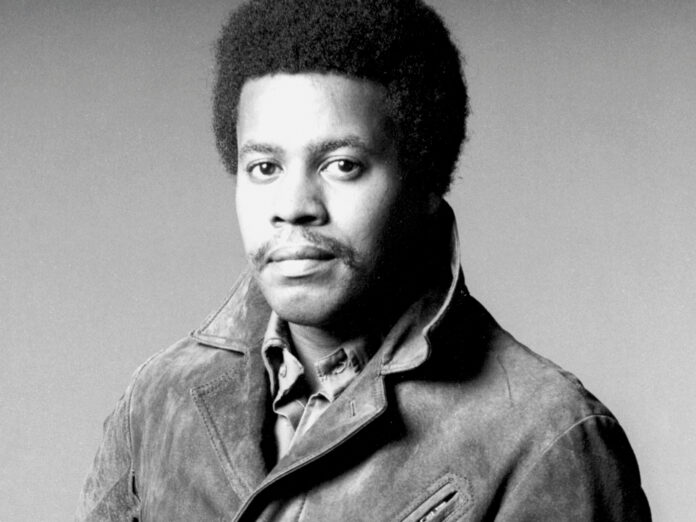Wayne Shorter’s career contains virtually the entire history of the second half of 20th century jazz. He cut his teeth with Art Blakey & The Jazz Messengers and eventually became the band’s musical director; he helped crystallise the emerging new sounds of Miles Davis’ Second Great Quintet and often composed for Davis; and he co-founded the pioneering jazz fusion group Weather Report. Not only was he an absolute master of the saxophone (originally on the less common soprano, then switching his focus to tenor) but he also redefined jazz composition, penned a number of pieces that have since become beloved standards, and has won numerous awards, including several Grammys. He died at the age of 89 in 2023, but his spirit lives on in the music he composed and the exploratory outlook of the many musicians he influenced.
Wayne Shorter’s career contains virtually the entire history of the second half of 20th century jazz. He cut his teeth with Art Blakey & The Jazz Messengers and eventually became the band’s musical director; he helped crystallise the emerging new sounds of Miles Davis’ Second Great Quintet and often composed for Davis; and he co-founded the pioneering jazz fusion group Weather Report. Not only was he an absolute master of the saxophone (originally on the less common soprano, then switching his focus to tenor) but he also redefined jazz composition, penned a number of pieces that have since become beloved standards, and has won numerous awards, including several Grammys. He died at the age of 89 in 2023, but his spirit lives on in the music he composed and the exploratory outlook of the many musicians he influenced.
BRUCE SPRINGSTEEN IS ON THE COVER OF THE NEW UNCUT – ORDER YOUR COPY HERE
This year sees the reissue of two major Shorter albums in the Blue Note catalogue: 1965’s JuJu, as part of their Classic Vinyl Series and 1971’s Odyssey Of Iska, as part of their Tone Poet Vinyl Series. JuJu, recorded in 1964, is squarely post-bop, showcasing Shorter’s facility as a bandleader and composer, exploring the edges of modal jazz with a melodic rush and a fired-up rhythm section of musicians best known for working with John Coltrane: pianist McCoy Tyner, bassist Reggie Workman and drummer Elvin Jones. In an interview with the writer Jim Macnie, Shorter explained that Coltrane wanted to get together because they were playing “not the same way, but in the same areas of the horn.” Shorter also described his own view of the rhythm section as the vessel; if Coltrane was the leader, Tyner would accompany him as the navigator. Together, they were the frontline. All of which is to say that Shorter was incredibly well-suited to work with Coltrane’s rhythm section – not in the same way as Trane, but perhaps in the same areas.
Tyner is navigator on JuJu too, a commanding presence with impressive solos. The ensemble’s energy is instantaneous on the title track that opens the record, Tyner’s piano and Shorter’s horn dancing with one another in agile formation while the rhythm section builds the foundation. Shorter’s post-bop work is characterised by distinctively melodic sax lines in a variety of moods, and this is evident from the jump on JuJu. He’s upbeat on the excellent “Deluge” but gets melancholy on “House Of Jade”. Then there’s “Mahjong”, another gorgeous song on an album full of stand-outs. Every musician gets their chance to shine, while Shorter’s horn channels sophistication and grace, tinged with a meditative edge. JuJu was Shorter’s fifth album as leader and second for Blue Note, but perhaps the first to really show the potential of his capability, not merely hinting but announcing further greatness.
Odyssey Of Iska is a nearly perfect bookend, not only because it was one of two final albums Shorter recorded for Blue Note (until a return in the 2010s) but also because it marks a shift in his style. The album was recorded in 1970, right around the time that Weather Report was formed by Shorter and keyboardist Joe Zawinul. The band would go on to define jazz fusion, alongside Chick Corea’s Return To Forever and Herbie Hancock’s Headhunters. Slivers of the forthcoming fusion can be heard on Odyssey Of Iska, which consists of four moody Shorter originals and a handsomely gentle take on “Depois Do Amor, O Vazio (After Love, Emptiness)”, a bossa nova-flavoured tune by Bobby Thompson.
The album is exploratory and atmospheric, the musicians working with a dense palette as they trace impulses both spiritual and avant-garde. The personnel includes iconic bassist Ron Carter and drummer Billy Hart (a member of Herbie Hancock’s Mwandishi band), alongside a broader selection of instrumentation that includes guitar, vibraphone and marimba. Misty percussion sets the mood on “Storm”, but when Shorter’s horn enters the fray, it’s a call to arms that matches the freneticism of the guitar. Iska is a reference to Shorter’s daughter, born around the time the album was recorded, but to continue the metaphor of vessels and navigation, Iska may well be a majestic ship carrying these sonic travellers on a freely flowing journey. Taken together, the albums are a striking showcase for Shorter’s development as a bandleader and composer. From modal jazz and post-bop to fusion and the avant-garde to his orchestral explorations later in life, Shorter’s legacy is undeniably far-reaching. His contributions are forever woven into the very fabric of jazz.
When you purchase through links on our site, we may earn an affiliate commission. Here’s how it works.



